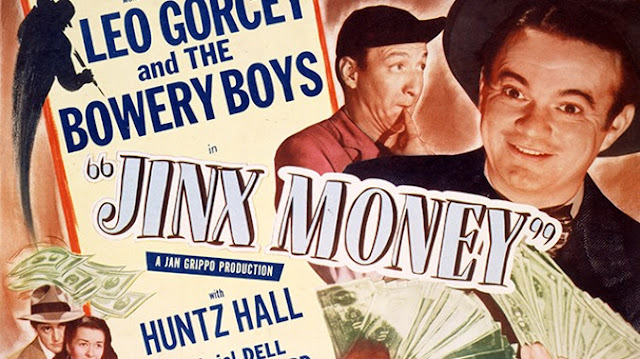Dedication and promise' emphasized by film composer Fielding
(Author's note: The following piece was published in The Post, Ohio University's student newspaper, on Oct. 15, 1979. At the time I was the film critic for The Post and coverage of Jerry Fielding's on-campus address provided me with a rare moment of connection to the Hollywood scene. The films mentioned in this article became classics, although at the time I and others were unaware of their later fame and influence on American cinema. Best known for his TV compositions ranging from HOGAN'S HEROES to MISSION IMPOSSIBLE, Fielding was born Joshua Itzhak Feldman on June 17, 1922, in Pittsburgh. A jazz musician and arranger, Fielding created the scores for such films as ADVISE AND CONSENT, 1962, THE NIGHTCOMERS, 1971, Sam Peckinpah's STRAW DOGS, 1971, and Clint Eastwood's THE GAUNTLET, 1977, in addition to the movies mentioned below. He died of a heart attack in Toronto on Feb. 17, 1980, 4-1/2 months after he spoke at OU. At the time, he was scoring the Canadian-produced horror film FUNERAL HOME, released later that year. -- Kevin Kelly).
If serious musicians want to be successful in the commercial world, they must hang onto principles about their craft, film composer Jerry Fielding advised a group of film and music students Saturday night.
"It all takes a certain amount of dedication and promise," he said. "Success in the commercial end implies yopu've made it with the bigger things. But if you concern yourself with a certain plateau, it won't be appreciated by the uninitiated."
Fielding spoke at the School of Music recital hall as part of the Sound and Music in Cinema workshop sponsored by the Athens Film Society and the Appalachian Regional Media Center. In the course of his two-hour talk, Fielding touched upon some frustrations of working in the Hollywood system.
"I am not an apologist for Hollywood or the Academy (of Motion Picture Arts and Sciences). You talk about aesthetics and if they (studio executives) ever heard of it at all, they usually think it means whether they get to sleep before the surgeon digs in," he commented.
Although he would be considered a success, the industry has not always been kind to Fielding. He was blacklisted for eight years for being an "unfriendly" witness to the House Un-American Activities Committee and recently threw in the towel on legal efforts to get film music copyrights given to composers rather than the studios.
"I can't report that we were successful," he said. "We didn't win and they didn't win."
But since the mid-1960s Fielding has remained steadily employed in Hollywood composing the scores for films directed by Sam Peckinpah and Clint Eastwood.
The most important thing about scoring a film, Fielding said, is knowing where to place the music. But no rules exist, and the composer is left to use his own intuition.
"Music is always subservient to film," he said, "and its aim is to serve the film. You have to analyze where it works in weak areas. There are some films that have weak areas, through no fault of the story or the actors."
What this calls for, he continued, is counterweighting music to sustain the viewer's interest in the weak areas. To demonstrate, Fielding showed a videotape of the climax of Clint Eastwood's THE OUTLAW JOSEY WALES (1976).
It was a long chase scene between Eastwood and the film's villain (John Vernon), and without music, the scenes were rather boring. But when he showed it again with the music he composed, the scenes were more eye-catching and suspenseful.
"(Peckinpah's) THE WILD BUNCH was considered an excessively violent film for its day (1969)," Fielding said. "What it needed from me was counterweighting. If you listen to it, the music is rather schmaltzy, but we played it another way."
The composer also faces the problem of deciding what kind of music to use. He will usually run through an inventory of standard music -- sometimes with surprising results. When he used music from the opera CARMEN for the baseball scenes in the Little League comedy THE BAD NEWS BEARS (1978), Fielding thought it was quite funny, although nobody else saw the point.
"Most of today's directors were either born without ears are learned to be deaf," he commented. "They only use their eyes."
Recently, Fielding experimented with a new kind of score for Eastwood's last film, ESCAPE FROM ALCATRAZ (1979). A low-key prison picture, it wasn't originally intended to have a musical score.
But Fielding used electronic music that was slowed down on tape and added sound effects. He did this, however, without informing either Eastwood or the film's director, Don Siegel.
"Mr. Eastwood and the director were in a high state of nervousness," Fielding recalled. But the two were ultimately satisfied with the score's unusual effect.
Fielding concluded that Hollywood, despite its flaws, is keeping film music alive and allowing it to expand. He generally disagrees with people who look disfavorably on film music, but admitted some of his colleagues deserve criticism. A popular song from a famous film he refused to name eventually killed Fielding's hopes of ever composing Academy Award-winning music.
"For no apparent reason, this song appeared in the picture," he said whimsically. "It came out about the time I was doing THE WILD BUNCH. It was the one about the guy riding a bicycle in the rain."
The film was BUTCH CASSIDY AND THE SUNDANCE KID and the song -- "Raindrops Keep Fallin' On My Head."





Comments
Post a Comment